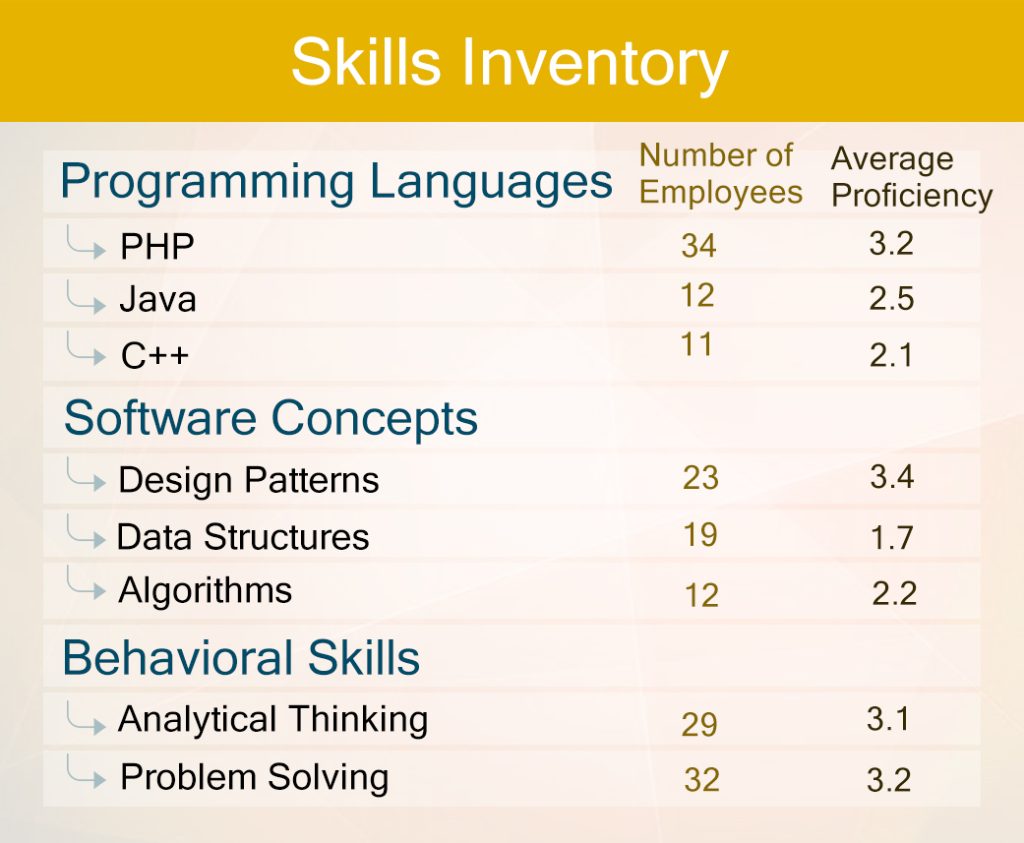Haven’t we all gone through tough examinations or assessments to prove our value as students? Shouldn’t the same be true for new recruits and existing employees?
Absolutely! This is why more organizations are conducting skills assessment tests to evaluate their employees and applying candidates. Long gone are the days when an employee’s experience and educational qualifications were the best ways to determine their value.
Why are skills testing for employment important? Here are some eye-opening statistics:
- 74% of employers have admitted to hiring the wrong person for a particular position.
- 78% of employee resumes have misleading information – while up to 46% contain false information.
- Companies that use skills assessments (before hiring) have reported a 39% lower turnover rate.
Effectively, pre-employment skills assessments have gained popularity among companies looking to screen out unqualified candidates. Here’s a complete skills assessment test that can help you employ the right job candidates – and promote the right employees to the next level. So, shall we get started?
Also Read:- Creative Employee Engagement Ideas: A Guide for Managers
What is Skills Assessment?
Simply defined, skills assessment is the process of evaluating an individual’s capability to perform a defined task. Essentially, it’s all about evaluating skills based on a job or role. How is skills assessment done? Through a series of skills assessment tests that are performed either face-to-face or online.
But why should companies conduct skills assessment tests? Skills assessment enables them to:
- Evaluate job candidates to check if they have the necessary skills to qualify for the job position.
- Check if the existing employees have the necessary skills to perform their work efficiently and productively.
Next, let’s discuss when organizations must conduct a skills assessment test.
When to Conduct a Skills Assessment Test
Skills assessments are typically performed during hiring and skill development initiatives. Here are the best times when organizations must conduct a skills assessment test:
1. Recruitment
During recruitment, hiring managers can narrow down the list of job candidates with an efficient employment skills evaluation using skills assessments. This helps them identify the most deserving candidates – or the ones best suited for the open position.
2. Career Development
Through job skills evaluation, companies can evaluate the current job skills of their existing workforce. This helps them evaluate if their employees have the necessary skill sets to meet challenging job requirements – and in their career development.
3. Employee Training and Development
Before undertaking the next employee training program, organizations can use skills assessment to know their existing skill level. This helps them design an effective learning program that is beneficial for all employees. Pre-training skills assessment also improves the overall effectiveness of the training & development program.
4. New Skill Development
In a changing work environment, organizations need to upgrade their workforce to learn new skills and technologies. On completion of a new skill training program, organizations can use skills assessment to measure how well their employees are proficient at the new skill or tool.
5. Employee Reskilling and Upskilling
Organizations turn towards reskilling and upskilling to address the growing talent gap. With a skills assessment guide, organizations are better positioned to design their reskilling and upskilling strategies.
Benefits of Skills Assessment
The main objective of a skills assessment test is to hire the right person – or evaluate the capabilities of existing employees. Here are some of the main benefits of well-designed skills assessment:
1. Reduces Hiring Bias
In any organization, human biases can impact any hiring process. Every hiring manager has a preference for certain candidates – based on their gender, academic qualification, or previous experience. A skills assessment test is more important to the individual’s skill sets than other factors.
2. Consistency
With skills assessment, organizations can consistently evaluate every job candidate and employee using the same metrics. For instance, all individuals with a “4-star” rating will have skill levels with the same consistency. Skills rating is no longer subject to individual perceptions or bias.
3. Career Readiness Assessment
Through skills assessment, organizations can evaluate the career readiness of any employee or candidate. Through regular assessment tests, they can monitor any employee’s progress or development and identify improvement areas.
4. Engaged Employees
Skill assessment also enables organizations to build a “growth mindset” in their workforce. Employees are naturally more motivated to keep learning new skills and improve their existing skills. Thus, employees are more engaged and committed to this workplace, thus ensuring higher loyalty and productivity.
5. Personalized Development
Regular skill assessment of individuals enables their employers to design a personalized development program for them. These tests are effective at highlighting their strengths and areas of improvement. Based on these findings, reporting managers can identify the specific skills that their team members must possess.
Now that we understand the importance and benefits of effective skills assessment let’s look at the various types of skills in demand in today’s organizations.
Top in-Demand Skills
In-demand skills can vary depending on the type of organization and industry domain. Here are some of the common skills in demand in 2024:
1. Technical Skills
Technical skills are in high demand in technology companies or those in application development and programming. Depending on the services offered by the company, technical skills can include expertise in the latest programming languages (like Java, JavaScript, and web programming), database skills (for instance, SQL Server), and cloud computing skills (for instance, Google Cloud or AWS).
Advanced technical skills can include expertise in Artificial Intelligence (AI), machine learning, and data science.
2. Communication Skills
Besides being technically proficient, employees must have excellent communication skills, which directly contribute to team collaboration and organizational culture. Effective communication is all about conveying your thoughts clearly – and hearing and understanding another individual’s opinion. Besides oral communication, communication skills also extend to email writing, responding to online communications, and team-building skills.
3. Creative Skills
Individuals with creative skills are in high demand across companies and industry sectors. These individuals are able to think “out of the box” and come up with fresh ideas to solve business problems.
Here are some of the common creative skills in demand:
- Problem-solving skills
- Empathy
- Critical thinking
- Networking
4. Leadership Skills
Leadership skills are not restricted to CEO and senior manager positions. They can be learned or cultivated right from an entry-level job position. Leadership skills are also needed to build strong business teams – or to complete small and large projects.
A good leader must also possess good creative and communication skills. Additionally, here are some other leadership skills:
- Fast and effective decision-making
- Honesty and integrity – along with a strong foundation of values.
- Team-building skills – or the ability to build teams to work towards the same goal.
- Mentorship skills to help subordinates grow in their careers
5. Adaptability Skills
Employees can possess all of the above skills, but they cannot fit into any organizational culture without adaptability skills. As job and skill requirements keep changing, adaptable employees are more flexible and open-minded to take on new roles and tasks. For instance, adaptable employees can easily switch to remote working or work independently (without a supporting team).
Here are some of the traits of individuals with adaptability skills:
- Collaborating with different teams and new recruits
- Commitment to continuous learning and development
- Ability to learn new skills and tools
- Innovative problem-solving capabilities
How to Conduct a Skills Assessment Test
Be it for any skill, here are the steps by which any organization can conduct a skill assessment test:
1. Define The Goals of The Skills Assessment
Skills assessment serves different goals for different organizations. The first step is to define the goal of your skills assessment test. Here are some questions that can help you define the goal:
- Are you planning to test new job candidates or existing employees – or both?
- Which is the type of skills (soft or technical) that you want to evaluate?
- Are you planning to reduce the skills gap through employee skills evaluation?
2. Identify The Skills Most Important to Your Organization
The next step is to identify the most important skills to your organization. These are the skills that are crucial for your business success (for instance, marketing skills). With a Skills Profiler tool, you can create and map various skill profiles essential for your company.
3. Measure The Existing Skills in Your Organization
In order to assess your organization’s skills, you must design a skills assessment test. Here are some useful tips for designing the right assessment test:
- Customize each test to suit every job role and requirement.
- Decide the right test format – for instance, face-to-face interviews, surveys, and performance reviews.
- Create a list of assessment questions for each test.
- Set a realistic deadline for completing each assessment.
4. Provide The Right Resources
The final step is to provide the right resources to perform the skills assessment. This can be in the form of online courses, mentorship programs, and training & development programs.
Conclusion
With skills assessment, organizations are well-positioned to hire the right talent and train their existing workforce. To achieve this objective, every organization first needs to have a real-time database of technical and soft skills. This is where IYS Skills Tech can make a difference with its comprehensive Skills Taxonomy tool.
IYS can help you transform into a skills-centric organization. If you want to know more, drop us a message with all your requirements at connect@iysskillstech.com.





